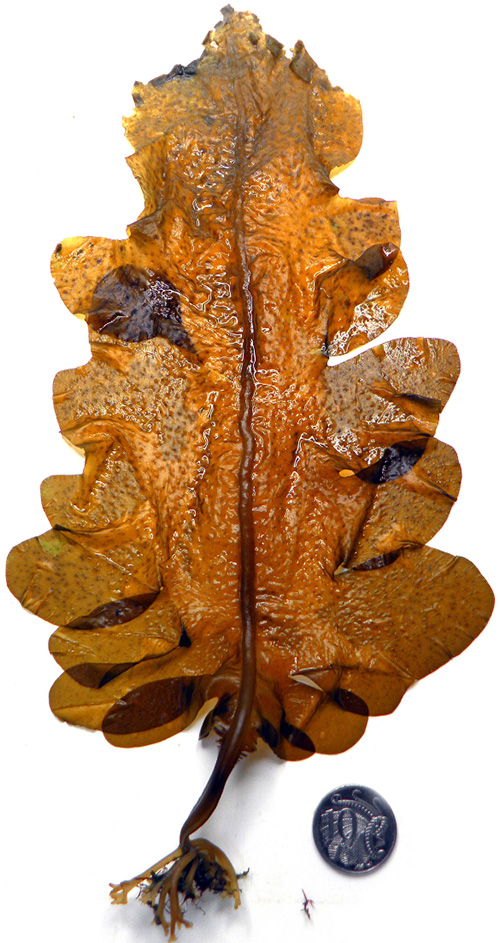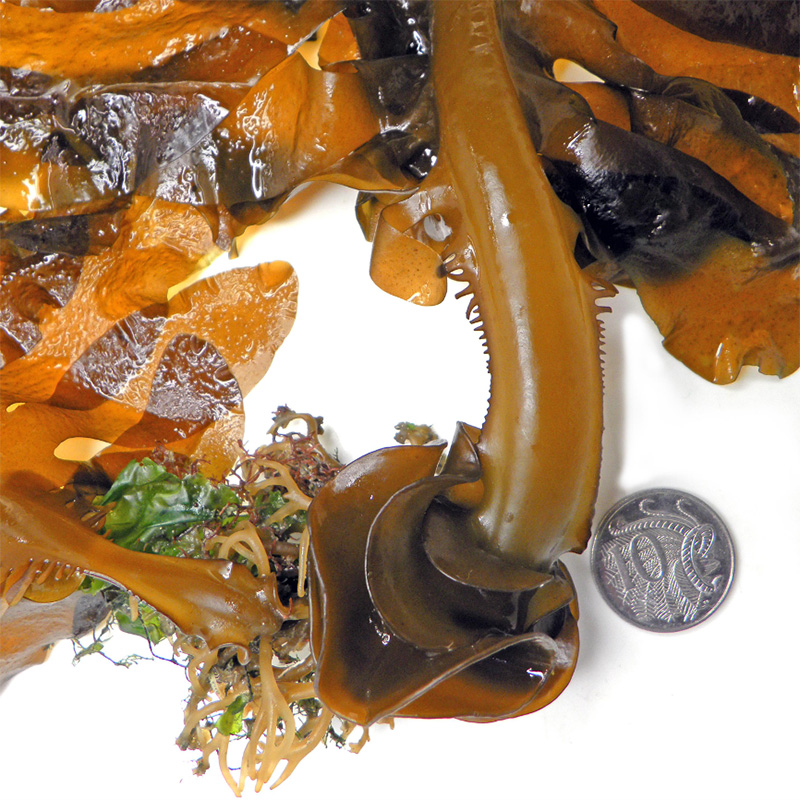Several weeks ago, Fiona McQueen, one of our volunteers who works in the Phycology Unit of the State Herbarium of South Australia, discovered the invading brown algal species Undaria pinnatifida growing on the pontoon of the marina at Robe in the SE of South Australia.
The species is a declared noxious weed in South Australia and is listed on the national Australian Priority Marine Pest List. The species is one of the world’s 100 most invasive species.
Undaria pinnatifida, also known as Japanese kelp or wakame, is endemic to Japan, where is has been cultivated for centuries as an edible delicacy. It has established in temperate regions throughout the world, including North and South American coasts, and of several European countries. Japanese kelp has also spread across the Pacific, reaching New Zealand and southern Australia, where it has become an opportunistic pest, readily colonising disturbed areas.
For a while, South Australia appears to have avoided the invasion that occurred in Tasmanian and Victorian cold-water coasts; the closest record was from Portland, Vic. From its appearance on Robe’s harbour facility, it is likely that it was transported here on the hulls of boats. The species has a microscopic sexual phase that could easily have been transported that way.
Although Undaria pinnatifida resembles our common kelp, Ecklonia radiata, it can be readily identified when mature because of the spore-bearing frills (sporophylls) wrapped around the base of the stalk.
The species has now been added to the South Australian Census of Plants, Algae & Fungi. The Department of Primary Industries and Regions’ (PIRSA) Biosecurity Division is working on a response to this invasive species. Any detections of Undaria pinnatifida outside of the Robe Marina and Cape Jaffa Anchorage should be reported to FishWatch on 1800 065 522.
Compiled by Hon. Associate Bob Baldock.


